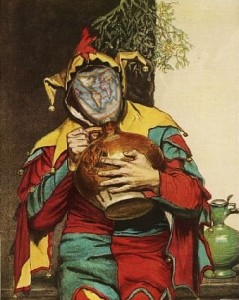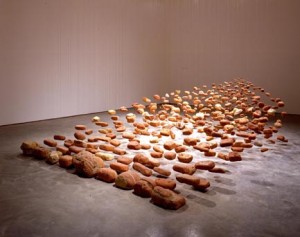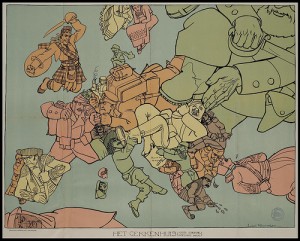 My abstract for what’s looking like a symposium-sized AAG session series (including fellow bloggers Stuart Elden and Gastón Gordillo) on “Violence and Space” organized by Simon Springer and Philippe Le Billon:
My abstract for what’s looking like a symposium-sized AAG session series (including fellow bloggers Stuart Elden and Gastón Gordillo) on “Violence and Space” organized by Simon Springer and Philippe Le Billon:
A paramilitary commander in Urabá, a frontier region of northwest Colombia, has always couched the mission of his war machine in terms of state formation—“the creation of the state in its absence.” How then did paramilitaries try to produce the state in a space where it supposedly didn’t exist? In answering this question, I examine a series of political and economic development projects that this paramilitary bloc set into motion in 2000 when a demobilization agreement with the Colombian government looked certain. The bloc’s ‘pre post-conflict’ maneuvers violently upended Urabá’s existing spatialities by intensifying the ongoing dispossession, repopulation, and concentration of land.
No less fundamental was how grassroots discourses of political subsidiarity, environmental conservation, and ethnic empowerment—all within a broader dispositif of grassroots development—were put to work by paramilitaries’ brand of frontier state formation. Moreover, when accompanied with iterative land parcelizations and transactions, these discourses enabled what could be called “land laundering.” All of this involved an intricate assemblage of private companies, NGOs, sham peasant associations, illicit capital, public officials, government aid, and, in some cases, funds from USAID. Paramilitary state formation worked the grassroots development apparatus by casting projects as participatory, local, green, and multicultural. With the World Bank increasingly concerned over the conflation of fragile states, violent conflict, and alarming land-grabs, this paper cautions that the grassroots development strategies being endorsed by the Bank and others as “solutions” can in some cases facilitate dispossession, illicit economies, and violent political projects.









